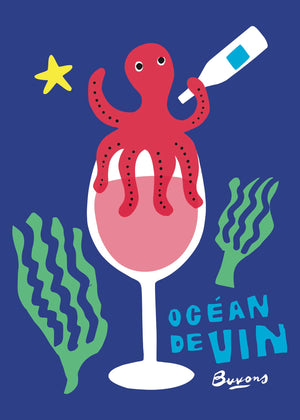
Grapes: Meunier
Region: Vallee de la Marne, Champagne, France
Vintage: 2017
Viticulture: Biodynamic
Soils: Limestone + Chalk
Yeasts: Native
Vinification: Gentle press, followed by fermentation in tonneaux. Battonage (lees stirring) is performed regularly for 10 months.
Aging: 18 months in bottle
Fining or Filtering: Disgorged
Dosage: 0 g/l
Notes from the Importer: Among the multitude of producers who have been looking beyond Champagne’s initial grower-producer movement—a movement of growers that began to break free of the big houses and to produce their own wines, typically focused on single plots—are two young and enthusiastic winemakers, Stéphanie Chevreux and Julien Bournazel, of Champagne La Parcelle. Since their debut vintage in 2012, they have been laser-focused on a more homeopathic approach, not only in the vineyards, but in the cellar too.
Upon the acquisition of their first vineyard, a 0.4 ha parcel on the Côteau du Barzy, Stéphanie and Julien immediately began the conversion to biodynamic practices, and to the naked eye it’s evident their land is happy and thriving. The cover crop is verdant with an array of wild thyme, carrots, tomatoes, fruit trees and all things life. The grapes are manually harvested during the cool, early morning hours, when it’s eleven to twelve degrees Celsius, before the short trip to their tiny cellar where they undergo a gentle press, followed by spontaneous fermentation in tonneaux. Following the lunar calendar, battonage is performed regularly throughout the winter months to give the wines more “gras,” a welcome layer to balance the naturally high acidity. The wines are never racked, filtered or fined, and SO2 levels are kept extraordinarily low (between 12-37 mg/L) and added just before bottling.
Connigis is Stéphanie and Julien’s second and, so far, latest acquisition. Luckily, it has never been touched by chemical treatments and has been thriving since they bought it in 2016. The subsoil consists of hard limestone, chalk and marne, and has deeper clay topsoil throughout compared to its counterpart, La Capella. It is protected by natural borders and therefore benefits from more temperate conditions, resulting in a wine that shows more opulence and roundness upfront. After about thirty minutes open, the palate begins to show a fine sea-spray salinity that balances out ripe orchard fruit aromas, keeping this wine straight and delicate.”




